Incidental fishing triggered a surge in shark deaths in Ecuador
This is a journalistic collaboration between Mongabay Latam and La Barra Espaciadora.
In Ecuador, the purse-seine tuna fleet overseen by the Inter-American Tropical Tuna Commission has been required since 2017 to return all captured silky sharks to the sea, whether alive or dead. However, one year before this regulation came into effect, the fleet’s silky shark catches nearly doubled.
Longline vessels catch up to five times more sharks than purse-seiners, yet they are barely inspected or monitored.

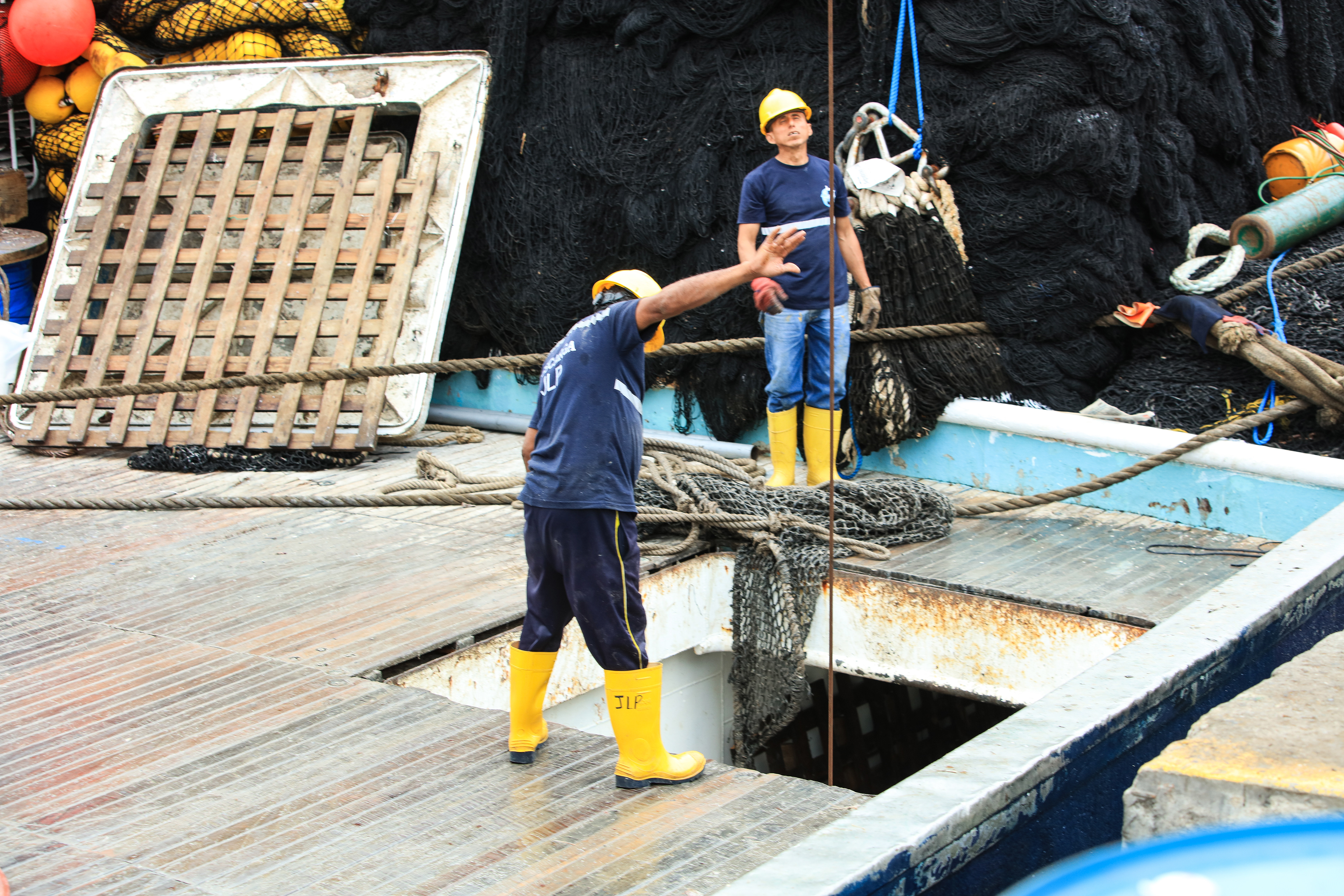

Ecuador’s booming tuna fishing industry, though economically vital, causes significant harm to endangered marine species through bycatch. A 2019 fishing trip illustrates this: alongside 552 tons of tuna, dozens of non-target species — especially vulnerable silky sharks — were also caught. Despite protections in place since 2007, reported incidental shark catches have continued to rise, raising concerns about the effectiveness of current conservation measures.
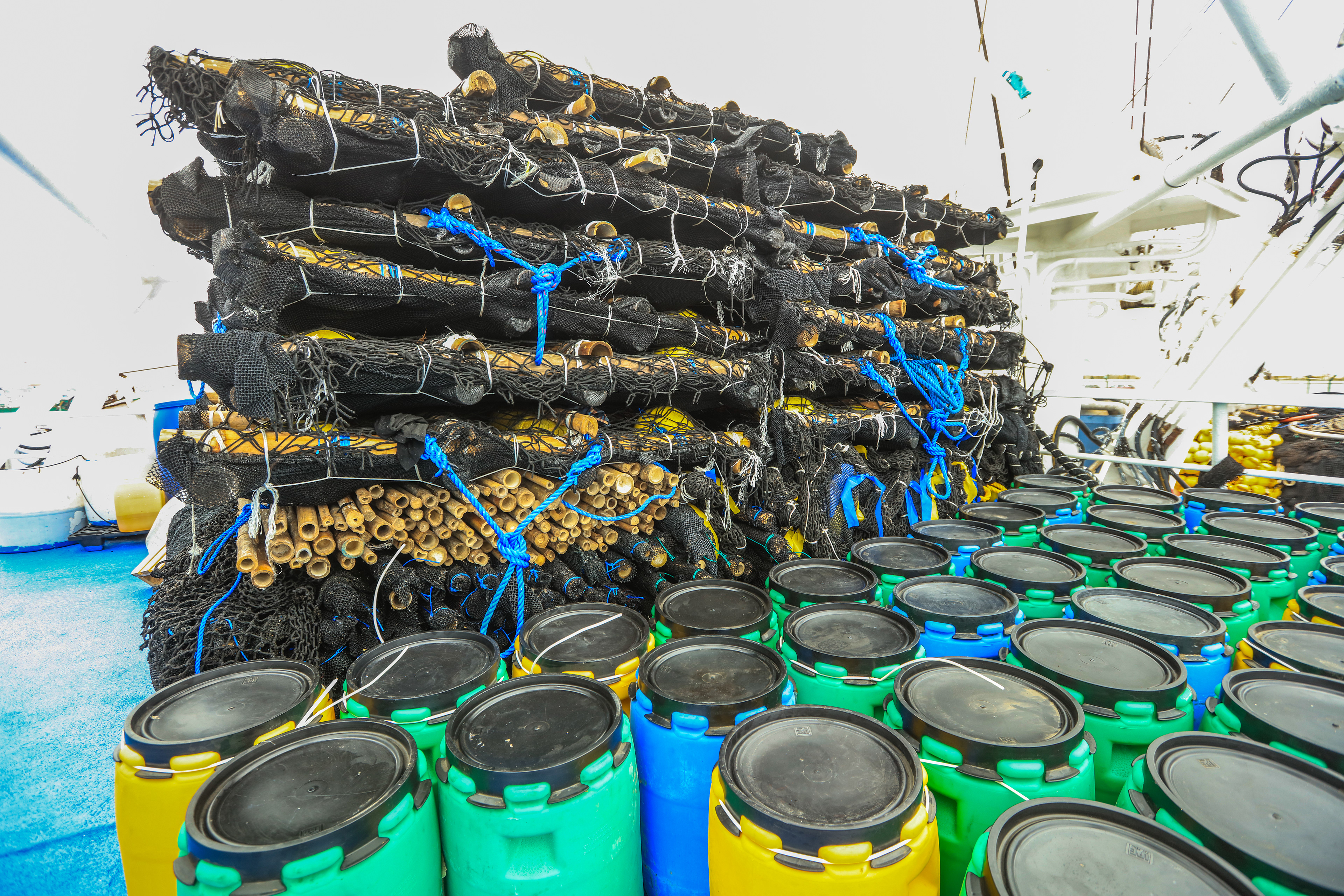

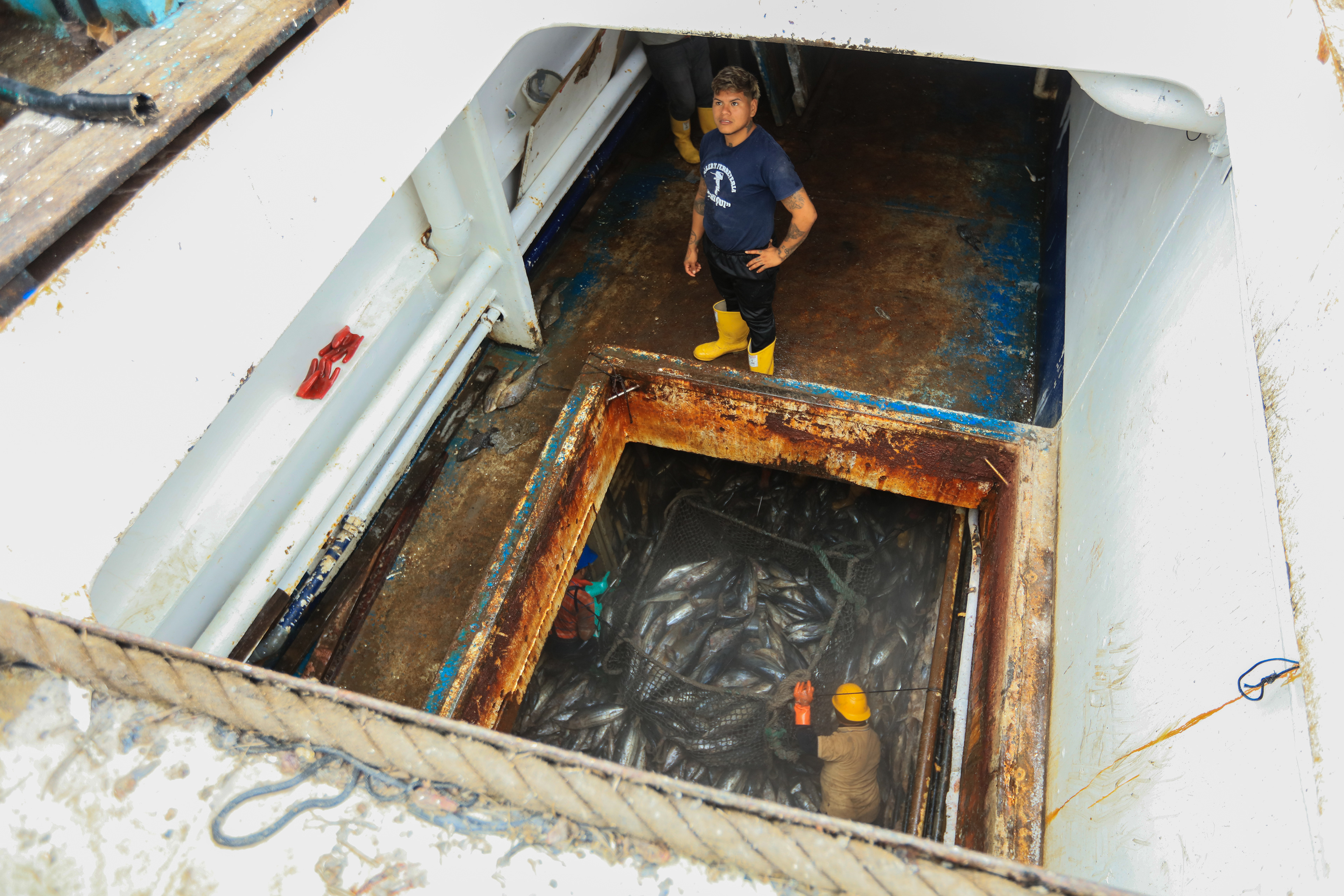
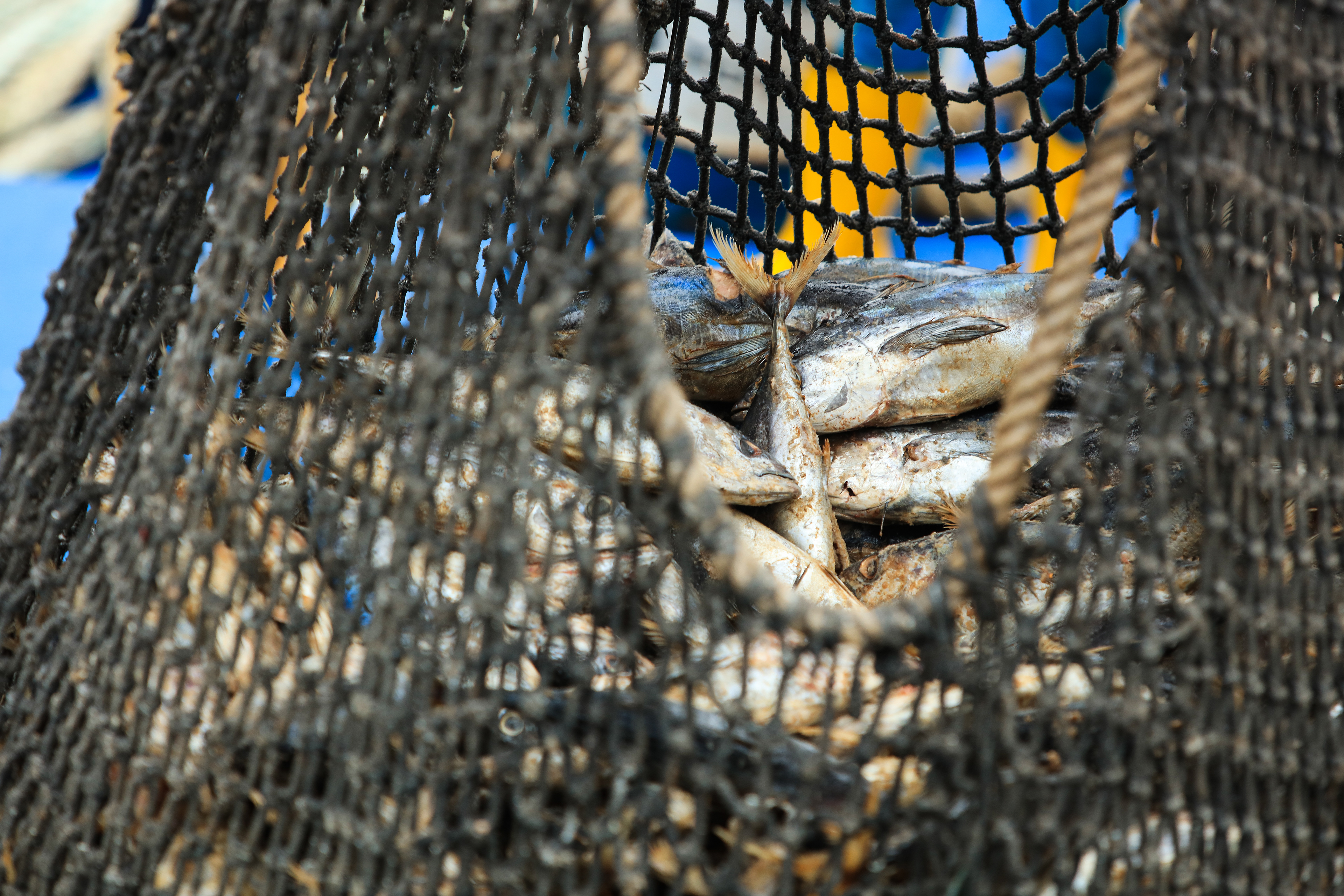
Ecuador is a leading tuna exporter, responsible for 45% of the Eastern Pacific catch and generating over $1.5 billion annually. However, this economic success comes with a high environmental cost — especially for endangered marine species like silky sharks.
Though Ecuador bans targeted shark fishing, bycatch (accidental capture) of sharks is widespread. Silky sharks, listed as vulnerable by the IUCN, are the most frequently caught species. Despite legal protections, their incidental capture has sharply increased — from 22,000 (2003–2006) to over 100,000 (2008–2012).
The global demand for shark fins fuels illegal trade, with Ecuador linked to major international seizures, including 26 tons of fins in Hong Kong in 2020. Weak monitoring, limited observer coverage, and flawed data collection — especially on smaller or longline vessels — allow underreporting and illegal fishing to persist.
Fishing vessels use Fish Aggregating Devices (FADs) to lure fish, but these also trap sharks and other non-target species. Although international measures like IATTC resolution C-16-06 and CITES regulations aim to protect silky sharks, data suggests a spike in captures occurred just before these rules took effect.
Government claims that shark population trends are due to "biological conditions" lack clear evidence. Experts argue that poor enforcement, insufficient oversight, and commercial pressures continue to threaten shark populations, making conservation efforts largely ineffective.
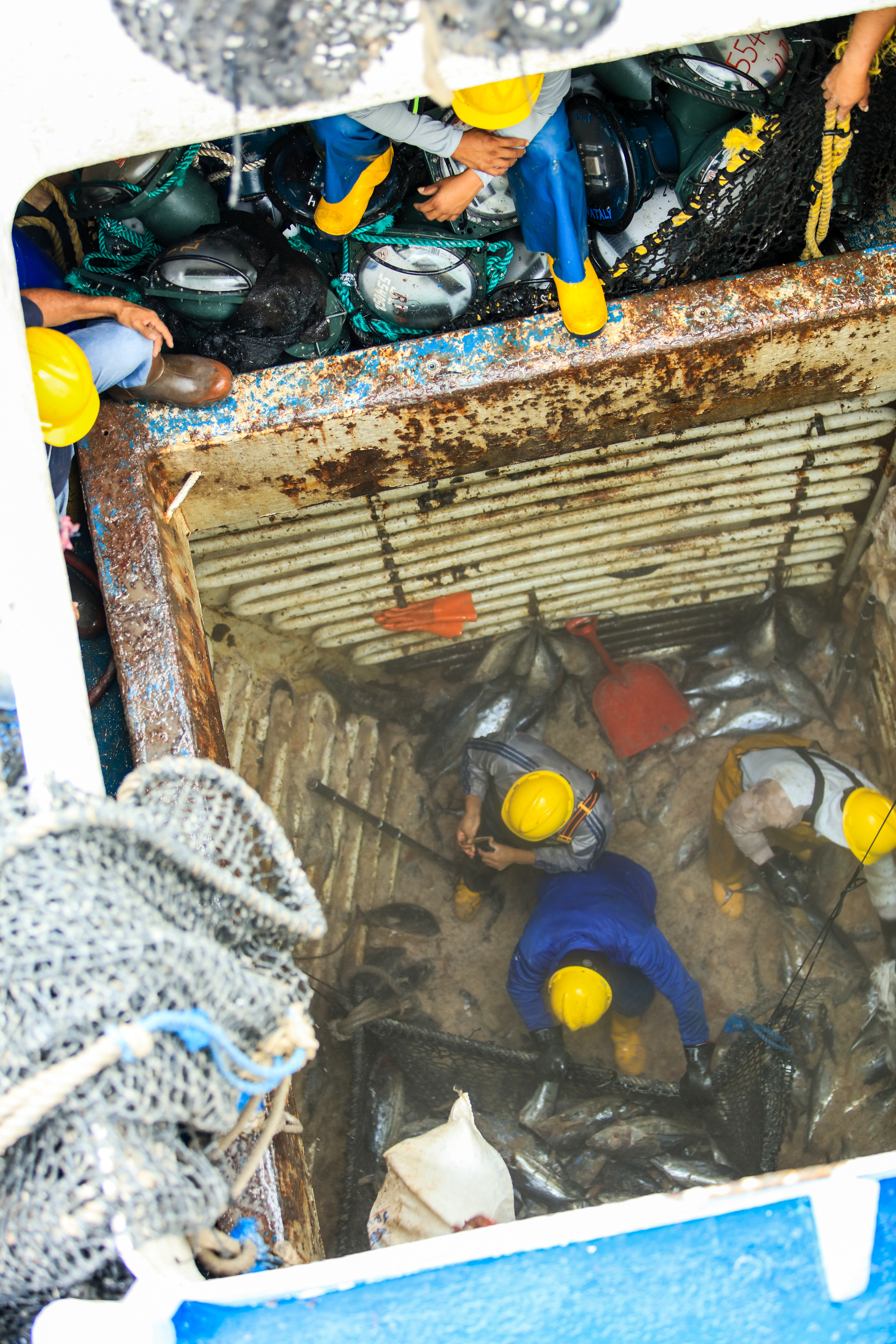
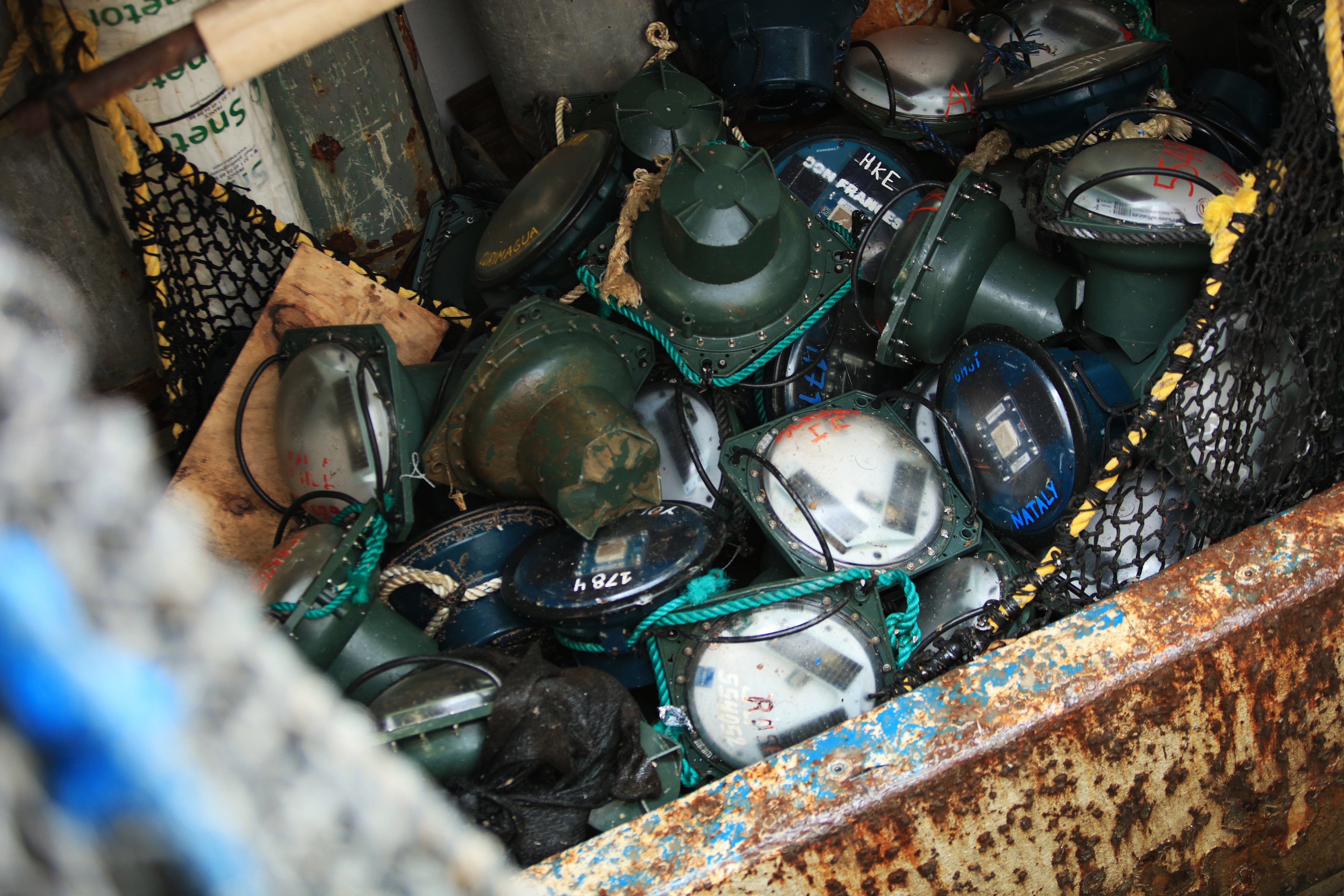
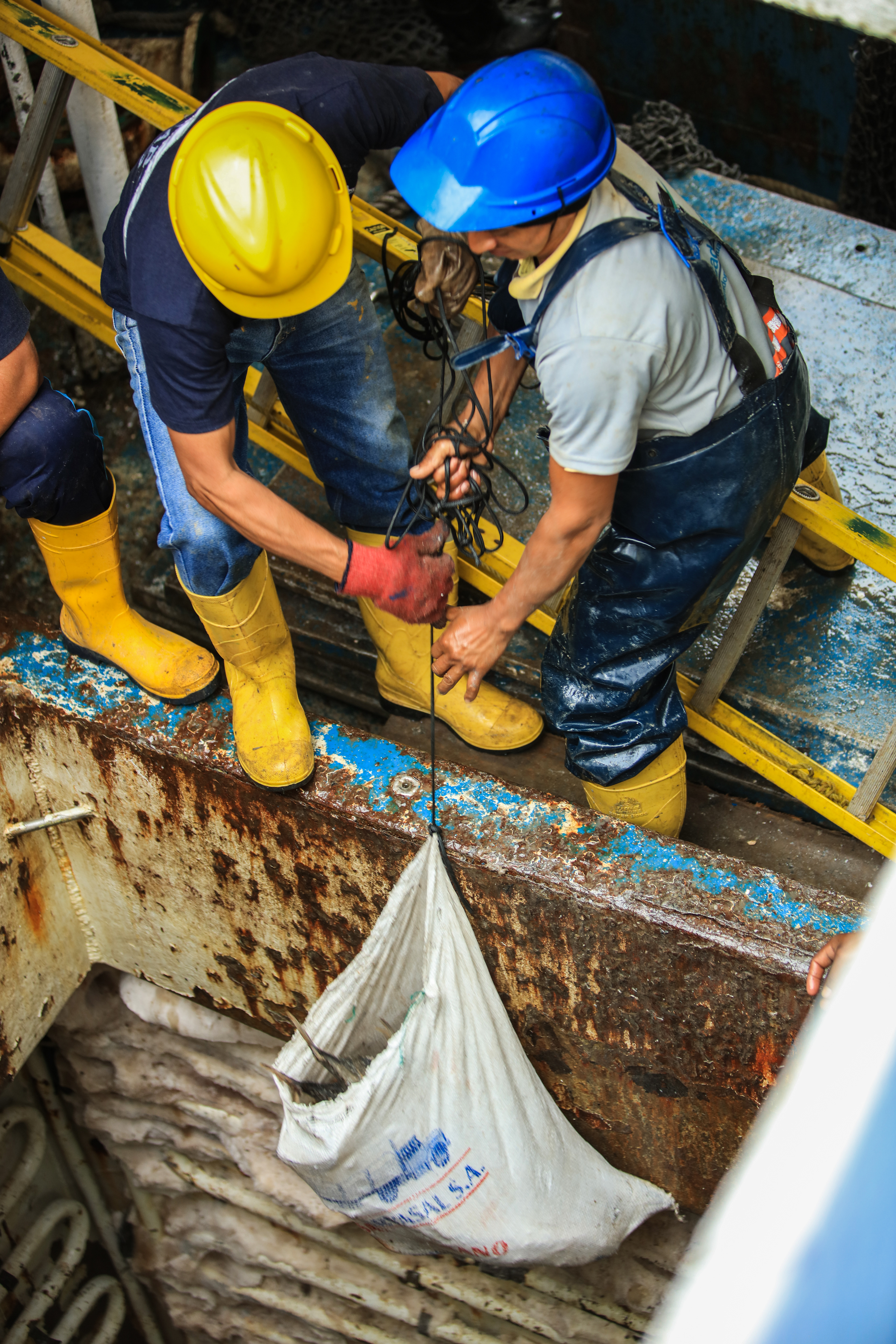
Si los barcos que sí tienen auditoría in situ tienen estas deficiencias en el control, la situación es más compleja en el caso de las miles de pequeñas embarcaciones artesanales, denominadas pangas, para las que no es requisito llevar a bordo un observador.
Según los registros de la Federación Nacional de Cooperativas de Pesca del Ecuador (Fenacopec), en el país hay más de 15 mil barcos artesanales que capturan atunes, entre otras especies, en las aguas del Pacífico. Pero los datos de sus métodos y capturas son incompletos o no están disponibles, lo que supone una tarea pendiente para el Gobierno y la actividad pesquera ecuatoriana.
El Ministerio de Producción, Comercio Exterior, Inversiones y Pesca reveló a Mongabay Latam y La Barra Espaciadora que en Ecuador existen 148 inspectores de pesca en las 25 inspectorías situadas en seis provincias del país. Ese centenar y medio de fiscalizadores debe supervisar, en puerto, a las 15 mil embarcaciones artesanales, pero también a las empresas exportadoras y a los barcos que sí llevan observadores.



Although Ecuador’s Ministry of Fisheries claims there is no data on illegal tuna fishing, that doesn't mean it doesn't occur. In fact, in October 2019, the European Union issued Ecuador a yellow card for illegal tuna fishing, demanding legal reforms, stricter vessel audits, and tougher enforcement to avoid trade sanctions.
In response, Ecuador drafted and passed a new Aquaculture and Fisheries Law in February 2020, aiming to promote sustainable resource use, enhance tracking of artisanal vessels, and increase penalties for illegal, unreported, and unregulated (IUU) fishing.
Efforts to contact major Ecuadorian tuna companies (Nirsa and Sálica) for comment on their impact on shark conservation went unanswered.
